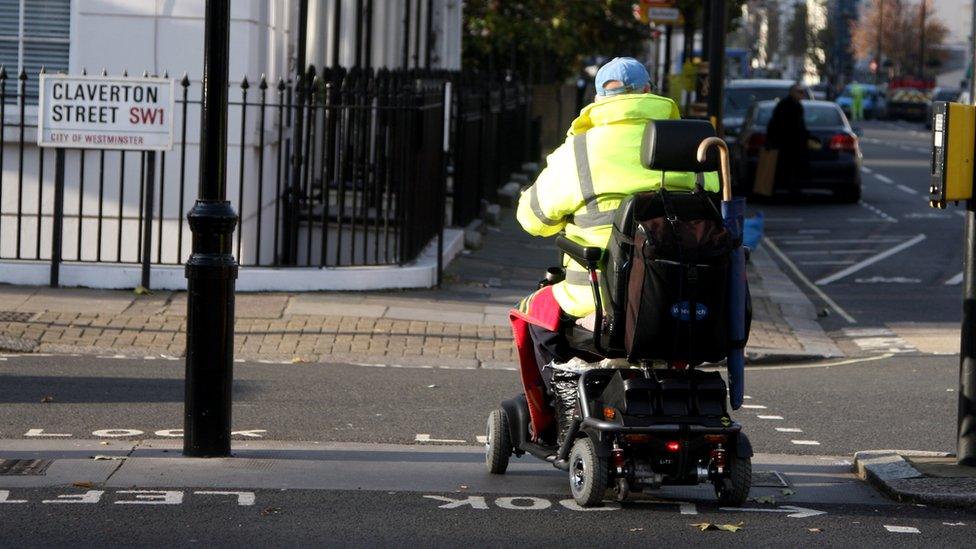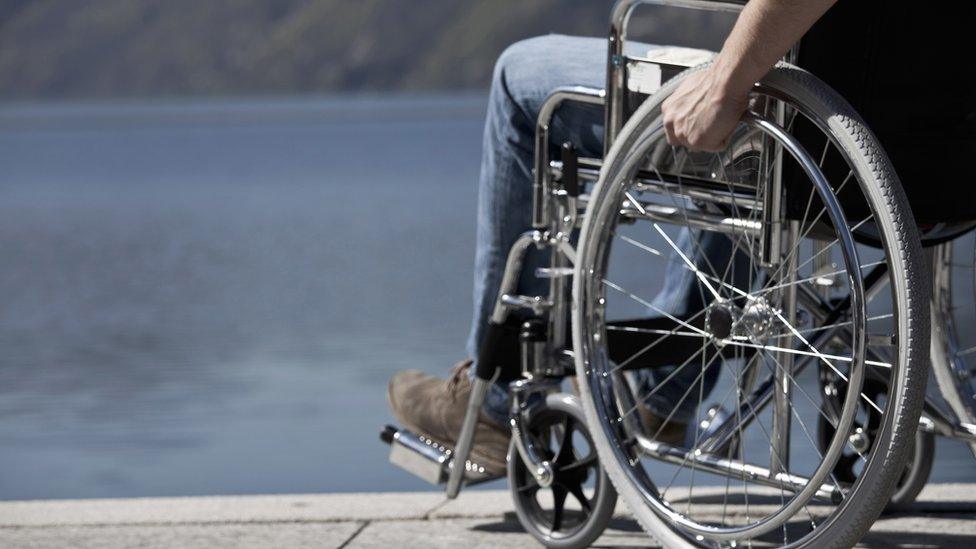Atos and Capita 'warned to improve Pip disability tests'
- Published

Atos and Capita must improve the delivery of Personal Independence Payments (Pip) or face losing their contracts, MP Frank Field has said.
The government says it is looking at extending the firms' contracts by two years to "better allow for a stable transition to any new provision".
And it was developing IT systems to move some of the work in-house.
Work and pensions committee chairman Mr Field said the ministerial statement, external was a clear warning to the companies.
"The government is making the important first steps to enable it to get out of a hole of its own making," said the Labour MP.
"Having the capacity to bring assessments back in-house will put it in a far stronger position to turn the screws on its hitherto failing contractors, in the interests of claimants and all taxpayers.
"This should serve as notice for Atos and Capita to start delivering, or else."
In February, Mr Field's committee found, external "a pervasive culture of mistrust" around the assessment process for Pip - benefit payments made to help people aged 16 to 64 cope with the extra costs they face due to ill health or disability.
A Department for Work and Pensions source said the re-tendering process for assessments would begin after the two-year period - in which other contractors may be successful.
The government has accepted the key finding of the DWP committee report, to make video recording of assessment interviews a standard part of the process.
On Monday, Work and Pensions Secretary Esther McVey told MPs the government intended to pilot the move to "make sure it is right", adding that such recordings will ensure people get an "honest appraisal".
Labour MP Nic Dakin raised concerns over a Scunthorpe constituent whose PIP assessment "did not reflect the truth" of the conversation they had had with an assessor, adding: "This happens too often to be just coincidence."
Ms McVey replied: "We all have to have faith in the conversations in those assessments and that is why I look forward to having them videoed to make sure we see, we hear, we know what's going on."
- Published19 January 2018
